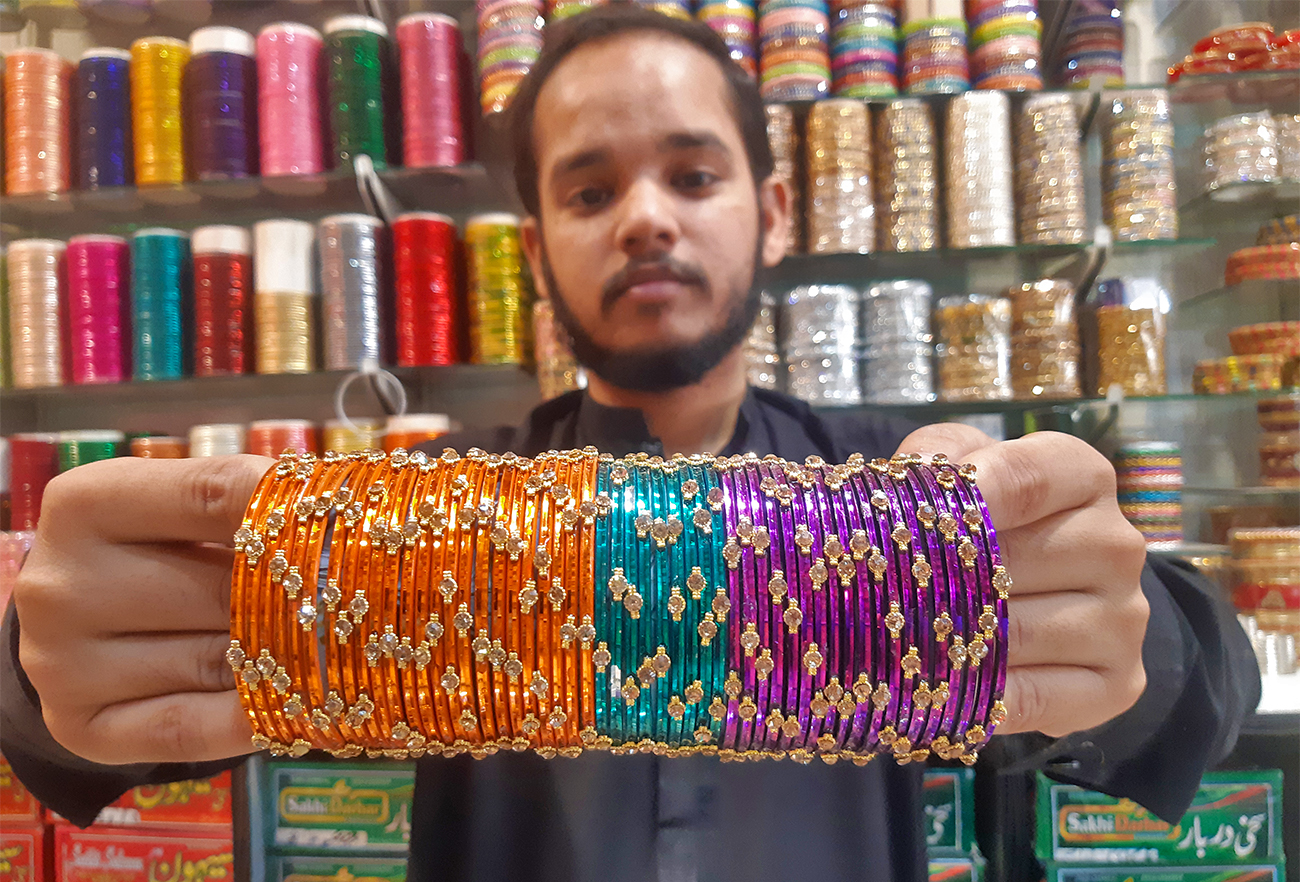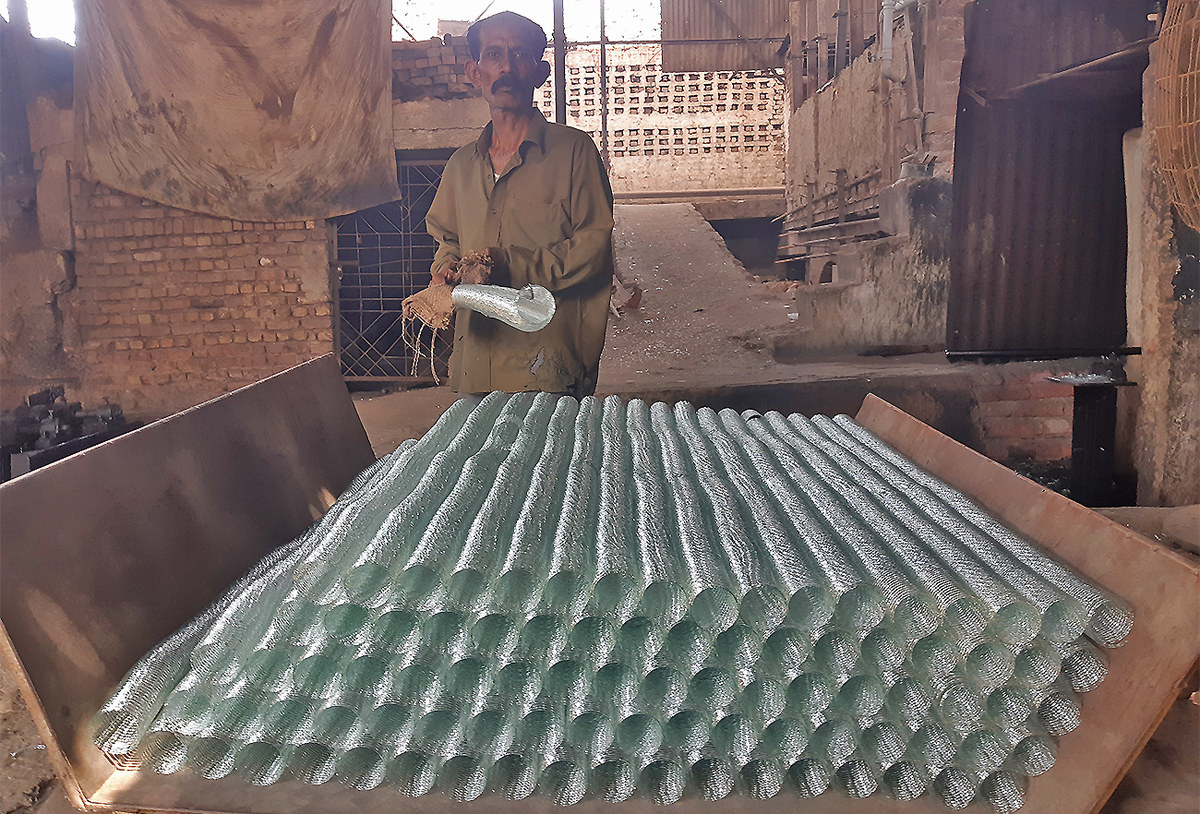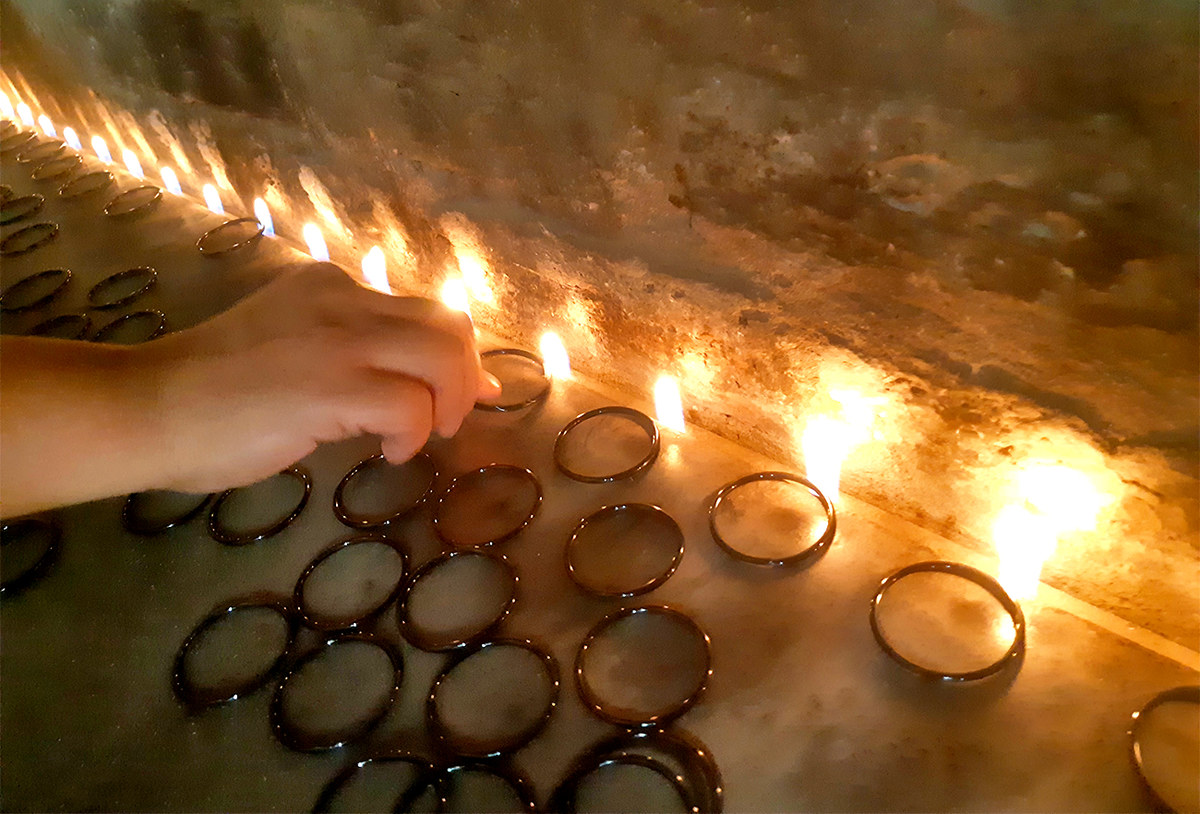HYDERABAD: Glass bangles are a favorite Eid Al-Fitr accessory in Pakistan, though many don’t know that a bulk of the delicate bands in every conceivable color and pattern are produced in the southern city of Hyderabad.
Most of the local artisans associated with the business originally migrated in the 1930s from the Indian district of Firozabad in Uttar Pradesh, and set up the hub of glass bangle production in Pakistan’s Hyderabad.
Today, however, the industry is struggling, hit by energy cuts, high power bills and raw material and labor shortages.
“Before the partition of the subcontinent [in 1947], not only the technical support but also the skilled labor arrived here in Hyderabad [from India],” Hassan Jamal Siddiqui, a spokesperson for the Glass Bangles Manufacturers Association in the city, told Arab News. “Today we have the fourth generation of those laborers [producing bangles in Pakistan].”

Vendor Ali ul Haq displays bangles at his shop at the Resham Gali Market in Hyderabad, Pakistan, on April 30, 2022. (AN photo by Zulfiqar Kunbhar)
But despite its virtual monopoly over the supply of bangles in Pakistan, the industry in Hyderabad is shrinking and more than half of the city’s manufacturing units have shut down in the last two decades.
“Out of the 70 glass bangle factories in the 1990s, only 40 have survived,” Siddique said, saying the industry was “shrinking due to the energy crisis combined with high rates of electricity, raw material shortage, and labor problems.”
According to the bangle manufactures association, the sector operated eight months a year and produced 60,000 bangle bunches per day, with each bunch comprising 290 bangles.
To make bangles, broken glass is first collected, mostly by women and then melted at a temperature of 1,400 °F (760 °C) until it becomes thin, viscous streaks. Using a roller, the streaks are then converted into bangle rolls.

A worker rolls bangles in Hyderabad, Pakistan, on April 30, 2022. (AN photo by Zulfiqar Kunbhar)
“In ‘jurai,’ the next major phase, the two ends of the bangle are joined together over a flame,” Jameela Latif, who works at a bangle factory in Hyderabad’s Liaquat Colony, said. “In the final stage, ‘meena kaari’ is used to give finishing touches through glitter or by adding gold water and multicolored crystals on the outer surface of bangles.”

A woman makes bangles in Hyderabad, Pakistan, on April 30, 2022. (AN photo by Zulfiqar Kunbhar)
Siddiqui said manufacturers produced new bangle designs on a fortnightly basis.
“Most designs and color themes are inspired by Indian television dramas,” he said. “For instance, ‘jhumki’ is in fashion these days. Colors like red, blue, black, brown, golden, yellow, green, shocking pink and magenta are also popular.”
Ahead of this Eid, some vendors complained of low sales during the daytime due to intense summer temperatures.
“Due to Hyderabad’s extreme heat, a majority of customers usually came to us in the evening,” Ali ul Haq, a 22-year-old seller of bangles in Resham Gali Market, said.
Customer Shahida Rajpar said bangles were a favorite gift to give to friends and family members on Eid.
“I have three daughters for whom I annually purchase bangles from the local Resham Gali Market,” she said. “On Eid, one cannot afford to forget one’s family and friends when it comes to giving bangles as gifts.”



















